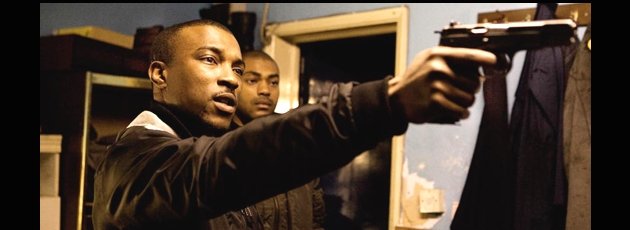- Home
- News & Blogs
- About Us
- What We Do
- Our Communities
- Info Centre
- Press
- Contact
- Archive 2019
- 2015 Elections: 11 new BME MP’s make history
- 70th Anniversary of the Partition of India
- Black Church Manifesto Questionnaire
- Brett Bailey: Exhibit B
- Briefing Paper: Ethnic Minorities in Politics and Public Life
- Civil Rights Leader Ratna Lachman dies
- ELLE Magazine: Young, Gifted, and Black
- External Jobs
- FeaturedVideo
- FeaturedVideo
- FeaturedVideo
- Gary Younge Book Sale
- George Osborne's budget increases racial disadvantage
- Goldsmiths Students' Union External Trustee
- International Commissioners condemn the appalling murder of Tyre Nichols
- Iqbal Wahhab OBE empowers Togo prisoners
- Job Vacancy: Head of Campaigns and Communications
- Media and Public Relations Officer for Jean Lambert MEP (full-time)
- Number 10 statement - race disparity unit
- Pathway to Success 2022
- Please donate £10 or more
- Rashan Charles had no Illegal Drugs
- Serena Williams: Black women should demand equal pay
- Thank you for your donation
- The Colour of Power 2021
- The Power of Poetry
- The UK election voter registration countdown begins now
- Volunteering roles at Community Alliance Lewisham (CAL)
Black stereotypes fuel unemployment
In her second news story, Kei-Retta Farrell takes a look at the dynamics that are fueling Black youth unemployment. One big factor, she argues, is Black stereotypes.
Around half of young black men available for work in Britain are unemployed according to the Office for National Statistics (ONS). A recent study conducted by the Black Training and Enterprise Group (BTEG), concluded that persistent racial prejudice was the main reason for high unemployment among the BME community.
BTEG an organisation created with the aim of promoting equality, collaboration and entrepreneurship in BME communities, recorded the views of 200 young black men aged 16-24 about their personal experience of finding work in London. All participants had applied for jobs in the last six months, 50% of which had applied for at least 100 jobs, but almost half had failed to be shortlisted. One participant said:
Black males are not shown in the best way in the public eye – people stereotype them as being in gangs."
Throughout the study this viewpoint evidently became a common thread amongst participants, a stark contrast to reasons put forward by mainstream employment support providers that help unemployed people into work, who often cite poorly presented CVs and lack of confidence as reasons for racial disparities.
According to the ONS, in the last three months of 2008 the unemployment rate for black people aged 16-24 was 28.8%. By 2011 this has risen to 47.4%, more than double the unemployment rate for young white people, which increased from 15% in 2008 to 20.8% in 2011
Popular TV shows like, Channel 4’s Top Boy, the Wire and Reality TV shows like those of the Love and Hip Hop Franchise, since their inception have been criticised for the perpetuation of Black stereotypes.
Since 2011, much of the BME community have taken to social media to complain about Top Boy’s depiction of poverty, gangs and drug dealing, taking issue with its one dimensional representation of ethnic minorities. One particular viewer has, however, been extremely vocal about what he terms “pernicious poisoning”, Lindsay Johns and Oxford graduate, writer and broadcaster who mentors young people in Peckham stated that:
These kinds of dramas perpetuate damaging racial stereotypes and that they merely depict one type of Black reality, at the expense of many others, much more positive, uplifting and inspirational realities of the Black British experience"
He went on to say:
All the 'usual suspects' were there in gleeful, unrestrained abundance; feckless dads, weed-smoking, pimp-rolling hoodies, gratuitous expletives, guns, copious drugs and brutal violence."
America’s the Wire, often likened to Top Boy, too has been a source of controversy. The show which airs on BBC has been criticised for its reliance on stereotypes and focus on the sale and use of drugs by blacks, essentially reinforcing inaccurate white middle-class stereotypes of inner city life.
Statistics show that generally whites perform the majority of these activities. Reviewers have berated the shows portrayal of gang culture as a holistic view of inner city life, an assumption that has led to it controversially becoming part of the teaching material on the Urban Inequality course at Harvard University.
Jeremy Crook OBE, director of BTEG, said:
It is important that we now focus on working with employers and find ways to ensure that their recruitment results are not being influenced by the negative stereotypes of young black men as criminals or in gangs.”
The problem is that there are not enough positive Black images in the media. The solution is not to silence these stories, as we have historically done before; the narratives are real and need to be told. Instead there should be a balance on our TV shows; a more representative views needs to be put forward.
Joy Wammington director of equalities organisation BRAP, warns that this is not enough and has called for a change in corporate culture:
If you do manage to get black people into companies, but fail to address the culture, you put people into an environment that they can’t really be a part of and can’t progression in.”
Demands for the creation of better networks and pathways are becoming louder, with some calling for the more radical measure of affirmative action, greater legislation and enforcement bodies.
These findings come despite improvements in educational attainment, post-16 education among black has increased but the labour market has worsened and the government continues to dismiss the figures.
Kei-Retta Farrell
